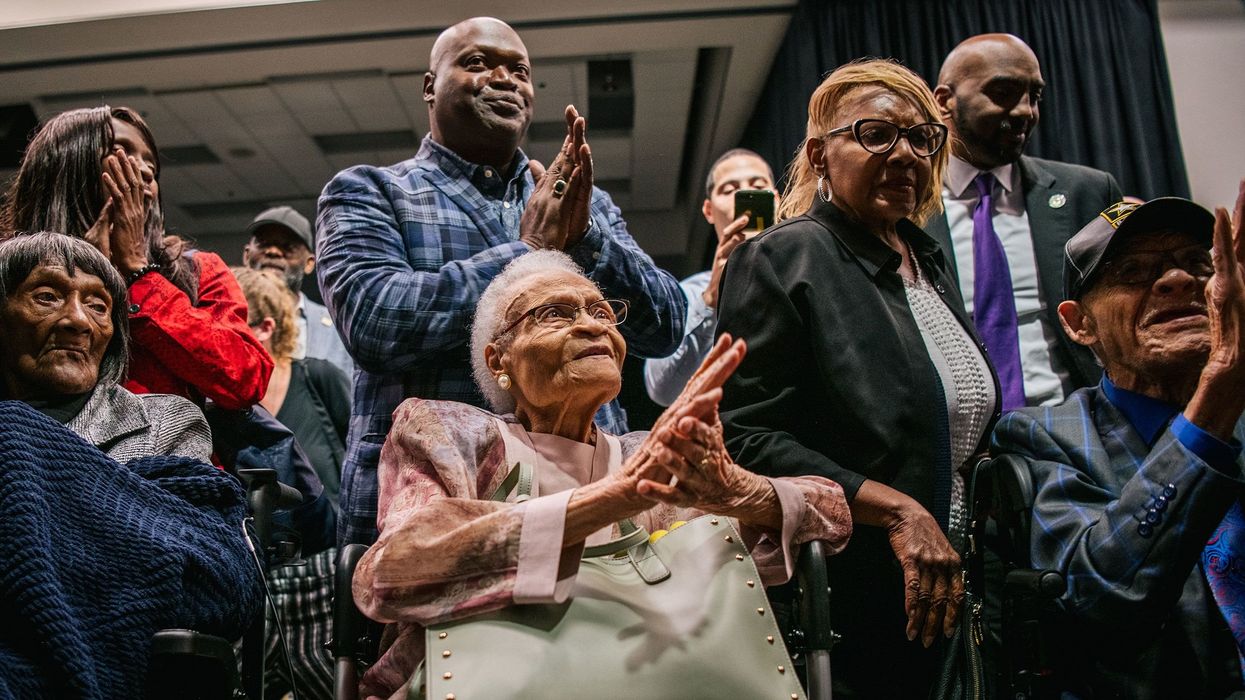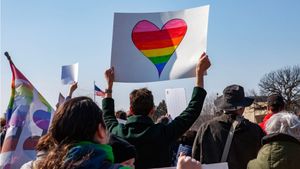(CNN) — The last three known survivors of the Tulsa Race Massacre – one of the country’s deadliest acts of racial violence – will appeal a judge’s recent decision to dismiss their lawsuit seeking reparations to the state Supreme Court, their attorneys announced Monday.
Lessie Benningfield Randle, 108, Viola Fletcher, 109, and her brother, Hughes Van Ellis, 102, had been locked in a yearslong legal battle against the City of Tulsa and other officials over opportunities taken from them when the city’s Greenwood neighborhood – dubbed “Black Wall Street” – was burned to the ground by a violent White mob in 1921.
Judge Caroline Wall dismissed the case on Friday.
“We were forced to plead this case beyond what is required under Oklahoma standards, which is certainly a familiar circumstance when Black Americans ask the American legal system to work for them. And now, Judge Wall has condemned us to languish on Oklahoma’s appellate docket,” the three survivors said in a statement read by attorney Damario Solomon-Simmons during a Monday news conference.
“But we will not go quietly. We will continue to fight until our last breaths.”
“Like so many Black Americans, we carry the weight of intergenerational racial trauma day in and day out,” the statement added. “The dismissal of this case is just one more example of how America’s – and specifically Tulsa’s – legacy of racial harm, racial distress is disproportionally and unjustly borne by Black communities.
“We will not rest until there’s justice for Greenwood.”
During the news conference, Solomon-Simmons said they found out about the judge’s decision Friday night, and called it an unexpected and “hurtful, difficult blow.”
“They’ve waited 102 years trying to get justice and reparations for themselves, their families and our community here in Tulsa. And for me to get the phone call … I could not believe it. We were completely blown away,” Solomon-Simmons told CNN Monday night, adding that it was painful having to tell his clients the case was dismissed.
Part of why they were surprised by the decision, the attorney said, was because the same judge who dismissed the case had ruled last year the lawsuit could move forward, Solomon-Simmons said in the news conference. The attorneys have yet to see the judge’s Friday written order, he said.
“We will be moving forward with an appeal on this case to the Oklahoma Supreme Court,” the attorney said, adding they’re also calling on the federal government to conduct an investigation into the massacre.
Solomon-Simmons told CNN the judge’s decision is “completely against the law.”
“We think the law is very clear. No one disputes that the massacre happened. No one disputes that my clients suffered a great loss. No one disputes that their property was burned down. They’re simply saying, ‘we don’t care,’” Solomon-Simmons said.
When contacted by CNN, the City of Tulsa said it “does not comment on pending litigation.”
What the lawsuit argued
In their lawsuit, the plaintiffs argued damage inflicted during the massacre was a “public nuisance” and sought relief to “recover for unjust enrichment” others gained from the “exploitation of the massacre.”
Cornell’s Legal Information Institute defines a public nuisance as when a person or entity “unreasonably interferes with a right that the general public shares in common.”
“Our public nuisance law here in Oklahoma is much more specific and more on point for our particular issue,” Solomon-Simmons told CNN. “It deals with if something interfered with someone’s right to property, the use of their property or destroyed or commits a crime by doing that. The Tulsa race massacre meets that definition 100 percent.”
But the City of Tulsa asked for the suit to be dismissed, arguing that “simply being connected to a historical event does not provide a person with unlimited rights to seek compensation from any project in any way related to that historical event.”
When the violence unfolded on the first day of June 1921 in the Greenwood district, 35 city blocks were burned and hundreds of houses were destroyed in just a matter of 24 hours. Historians believe as many as 300 people may have died, according to the Tulsa Historical Society and Museum. Thousands were left homeless.
Oklahoma state Rep. Regina Goodwin, whose great-grandfather was a well-known businessman in Greenwood at the time of the massacre, also spoke during Monday’s news conference.
“It’s the court that holds the key and the cage of justice and we’ve been waiting for 102 years for them to unlock it. How crazy is that?” Goodwin said. “And then we have to think about all of the folks and what they lost, lives lost, folks were murdered.”
“This generational injustice, yesterday, today and tomorrow will be met by generational right. We ain’t going nowhere,” the lawmaker added.
The-CNN-Wire
™ & © 2023 Cable News Network, Inc., a Warner Bros. Discovery Company. All rights reserved.


















































